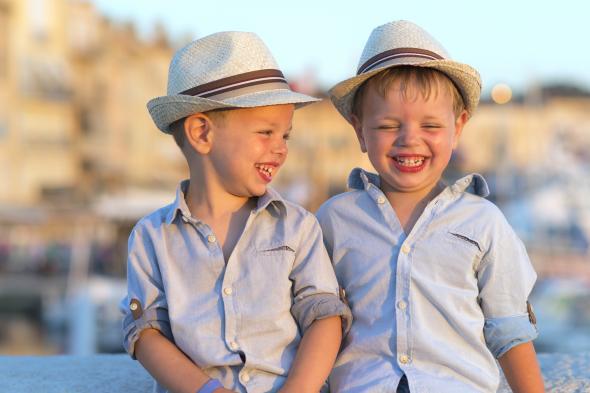One of the great joys of summer in childhood is the freedom to strip off your clothes and frolic shame-free-naked on the beach. On a recent family vacation to North Truro, Massachusetts, without thinking twice, I let my 3-year son disrobe to his natural state and enjoy this pleasure, knowing that one day soon social norms will challenge his sense of modesty.
In these parts, however, these norms seem to be creeping in early. After two days of beach frolicking, the manager of our hotel pulled Grand Ma aside and told her that guests had been complaining about my son’s public display. Apparently, one guest had grumbled that my son’s nudity was “in the face” of her 8-year-old daughter—that it was not appropriate for her to see a naked little boy.
A little background: We live in Sausalito, California, a place known for loose social norms, and where it’s common to see kids much older than 3 running naked around our local beach. But I think this encounter hits upon a deeper rift than just New England Puritanism versus Californian communitarianism—after all, we were just a stone’s throw from Provincetown, Massachusetts, and scarcely an hour before we were shamed for public toddler-nudity, I saw a group of scantily clad drag queens shaking it down Commercial Street.
On Facebook, a friend invoked Thomas Mann’s 1929 novella Mario and the Magician, in which a family’s Italian beach vacation is marred when their 8-year-old daughter strips off her sandy bathing suit to rinse it in the sea. Italian locals protest the offense against decency and Italian hospitality, and the family is subsequently fined 50 lire. “It’s a frightening depiction of nascent European fascism,” my friend wrote. “Perhaps our puritanical citizens are ready for a Trumpian version?”
Comparing helicopter parenting to pre–World War II European fascism may be extreme, but I would definitely say it’s a sign that the outer Cape is losing its status as a laid-back bohemian enclave. Another friend suggested that this type of helicopter parenting is “a toxic function of the over-sexualization of children.” It’s only logical that if a child is made to feel embarrassed of his or her naked body, or awkward around another child’s naked body, then their bodies have been sexualized, which in turn elicits shame and discomfort.
“I know of no studies about beach trauma,” my friend Joseph Youngerman, a New York City child psychiatrist, told me. “Freud said that it’s not sexual curiosity but repression that hurts us. It’s healthy to be able to witness the bodies of animals, including our own, in situations not fraught with tension, despair, conflict, all the intense emotions, passed through the family and societal warp, which distort our perspectives into shame, guilt, and bad feelings.”
This event with my son really has little to do with what children should or shouldn’t see or do. It’s more about the projection of adult shame. My son’s nudity wasn’t dangerous to anyone; it only looked dangerous in the funhouse mirror of one woman’s internal shame. She missed the opportunity to empower her daughter, and instead sowed the seeds of female sexism and body shame. I’m all for teaching children about their private parts and protecting them from the real dangers of sexual predators. But I think this mother was teaching her daughter that the normal naked body is shameful and that the male body is something threatening and harmful.
For the rest of our vacation, every time my son tried to strip down, I had to tell him that he couldn’t. “Why?” he kept asking. I never told him. If he can’t experience all the freedoms of summer, at least he can remain innocent of the tiresome answer to his question.
